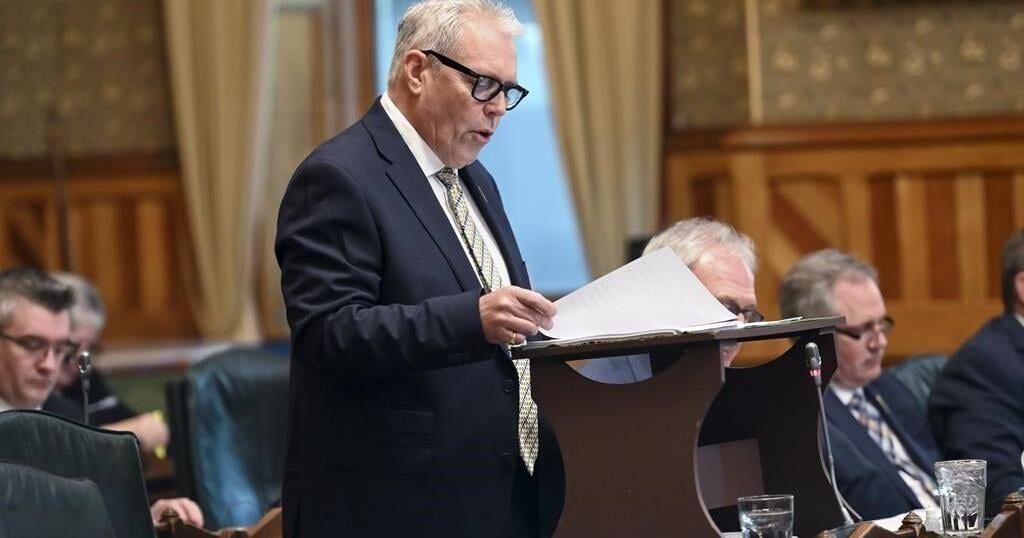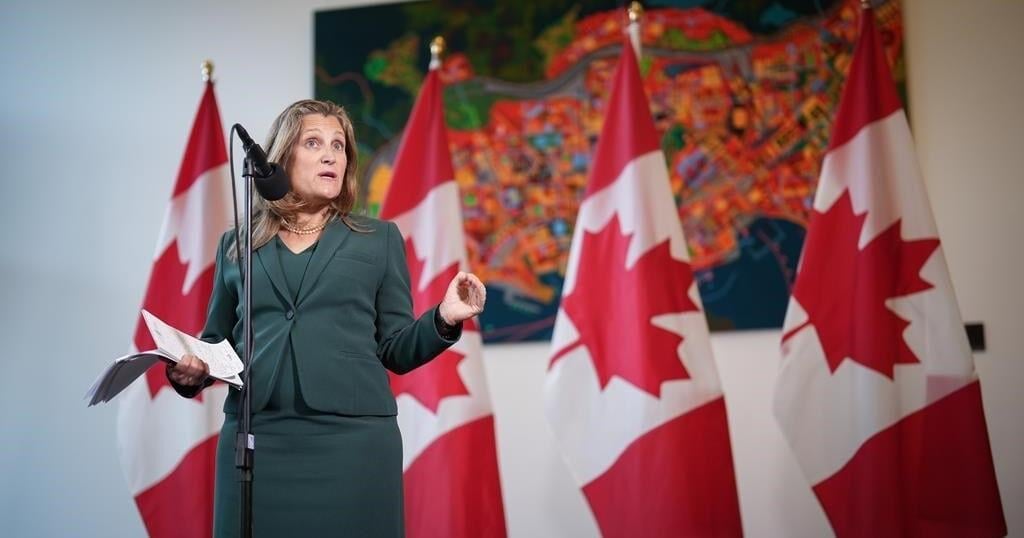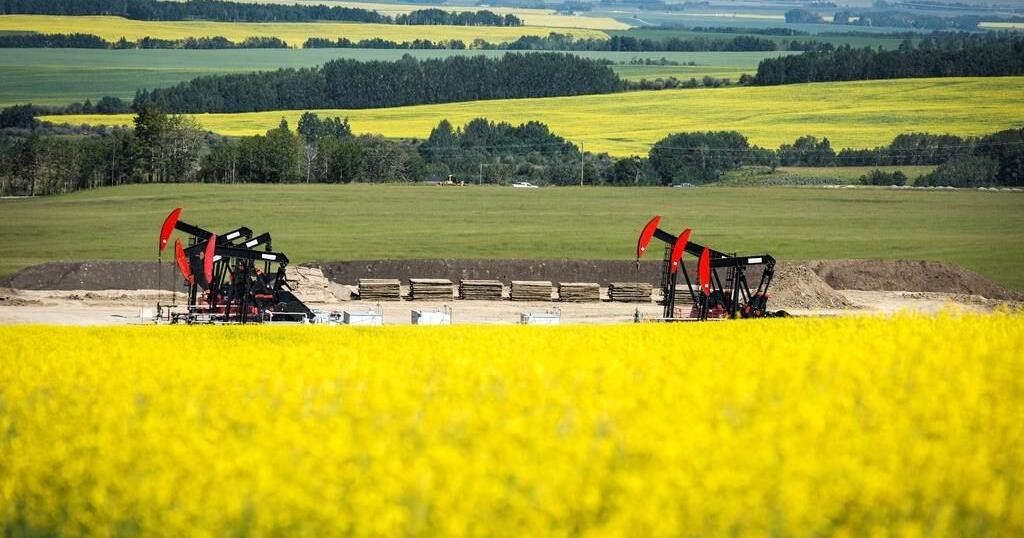The East is ascendant. The West is in irreversible decline. And China is proving that its centralized, state-led authoritarian system is superior at delivering high economic growth and rapid development, in contrast to messy and fractious democracies.
Economy
Opinion | Xi Jinping’s vaunted economic model is failing – The Washington Post
For years, and particularly since Chinese President Xi Jinping cemented his power, this has been the official message underpinning Mr. Xi’s “great rejuvenation of the Chinese nation.” Rejuvenation — also called revival — has been repeated like a mantra in official documents and by the state-run media. It carries specific strategic aims: restore China as a global power; double the size of the economy and surpass the United States by 2035; achieve “common prosperity” to erase income inequality. “The superiority of our system will be fully demonstrated through a brighter future,” Mr. Xi proclaimed.
Now, that brighter future appears increasingly in question. After decades of spectacular growth, China’s economy is slowing down — and the country is facing serious economic and demographic challenges. Exports are flagging. Retail sales are lagging. The all-important property market appears to be a bubble in danger of collapsing. More than one-fifth of young people are officially unemployed, and the real number is likely much higher. The country is awash in debt.
Major banks have now cut their forecasts for China’s gross domestic product growth for this year and next. Beijing has conceded it is unlikely to hit its own projected growth targets for this year.
Some of China’s problems are of its own making, the result of misguided policies inflicted by the country’s ruling Communist Party leaders. The demographic imbalance can be traced to the decades-long one-child policy, at times brutally enforced with involuntary abortions and forced sterilizations. Now, China’s population is declining for the first time in more than 60 years, and, faced with a shrinking future workforce, the government is coming up with an array of policy incentives, propaganda campaigns and gimmicks to try to persuade or coerce people to have more children. So far, those efforts have found little success.
India, a rowdy and robust democracy, has already passed China in population this year and is also projected to outpace China in economic growth for 2023.
China’s strict “zero covid” policy was also a factor, cutting off the country from the world for most of three years during the pandemic. After a brief uptick this year when the controls were finally lifted, the economy has still not recovered to its pre-covid levels. International tourism, for example, is just a fraction of its 2019 level.
China’s leaders, enamored of state-run enterprises and paranoid of any rival power centers outside their direct control, also embarked on campaigns to rein in the freewheeling tech sector, the housing market and the lucrative private education and after-school tutoring sector, putting thousands of companies out of business.
Other problems in China are external, particularly the impact of the U.S. trade wars and sanctions hitting the technology and semiconductor sectors of the economy.
Now, rather than showcasing the supposed “superiority” of the Chinese system, the current economic downturn is underscoring the Communist leadership’s unwillingness or inability to respond to the country’s myriad mounting crises. Outside economists and experts say the government should be introducing new stimulus measures, such as infrastructure building, to create jobs and also ease lending conditions for new home buyers. But, so far, the government in Beijing has seemed paralyzed with indecision.
It’s an old trope that authoritarian governments are more efficient, and produced better results for their people, than democracies. In the 1990s, this misguided belief was known as “Asian values” and became an article of faith among many adherents — until it was busted by the 1997 economic crisis. Mr. Xi revived it and took the idea to a new level. Now, it looks to be busted again.
Western democracies, with their fragmentation, polarized politics and endless debate and delay have long been derided as inefficient and ill-suited for tackling big long-standing problems — and one need only to look at the endless debt and spending debates in the United States, or the initial fumbling response to the pandemic with the arguments over mask-wearing and lockdowns. In the United States as well as in Europe, frustration and disaffection with democracy and concern over growing inequalities has led to a rise of populism and an attraction among some to a supposedly superior authoritarian model.
But in the post-covid era, the Western democracies have emerged stronger and some of the authoritarian regimes are struggling.
The world’s other great authoritarian model, Russia under President Vladimir Putin, is floundering economically for very different reasons. After Mr. Putin’s illegal and disastrous invasion of Ukraine, the West came together to impose crippling sanctions. Now, the ruble has plunged to its lowest point in 17 months, inflation is rising and Russia’s once lucrative gas exports to Europe have plummeted. Defense spending is, for now, keeping Russia’s economy propped up.
China and Russia had been trying to lure countries of the Global South to their concept of a new world order, not dominated by Western institutions and the United States, showcasing alternative models to Western-style democracies. Now, the two authoritarian giants are flailing. Let’s hope the world is paying attention.
Economy
Federal money and sales taxes help pump up New Brunswick budget surplus

FREDERICTON – New Brunswick‘s finance minister says the province recorded a surplus of $500.8 million for the fiscal year that ended in March.
Ernie Steeves says the amount — more than 10 times higher than the province’s original $40.3-million budget projection for the 2023-24 fiscal year — was largely the result of a strong economy and population growth.
The report of a big surplus comes as the province prepares for an election campaign, which will officially start on Thursday and end with a vote on Oct. 21.
Steeves says growth of the surplus was fed by revenue from the Harmonized Sales Tax and federal money, especially for health-care funding.
Progressive Conservative Premier Blaine Higgs has promised to reduce the HST by two percentage points to 13 per cent if the party is elected to govern next month.
Meanwhile, the province’s net debt, according to the audited consolidated financial statements, has dropped from $12.3 billion in 2022-23 to $11.8 billion in the most recent fiscal year.
Liberal critic René Legacy says having a stronger balance sheet does not eliminate issues in health care, housing and education.
This report by The Canadian Press was first published Sept. 16, 2024.
The Canadian Press. All rights reserved.
Economy
Liberals announce expansion to mortgage eligibility, draft rights for renters, buyers

OTTAWA – Finance Minister Chrystia Freeland says the government is making some changes to mortgage rules to help more Canadians to purchase their first home.
She says the changes will come into force in December and better reflect the housing market.
The price cap for insured mortgages will be boosted for the first time since 2012, moving to $1.5 million from $1 million, to allow more people to qualify for a mortgage with less than a 20 per cent down payment.
The government will also expand its 30-year mortgage amortization to include first-time homebuyers buying any type of home, as well as anybody buying a newly built home.
On Aug. 1 eligibility for the 30-year amortization was changed to include first-time buyers purchasing a newly-built home.
Justice Minister Arif Virani is also releasing drafts for a bill of rights for renters as well as one for homebuyers, both of which the government promised five months ago.
Virani says the government intends to work with provinces to prevent practices like renovictions, where landowners evict tenants and make minimal renovations and then seek higher rents.
The government touts today’s announced measures as the “boldest mortgage reforms in decades,” and it comes after a year of criticism over high housing costs.
The Liberals have been slumping in the polls for months, including among younger adults who say not being able to afford a house is one of their key concerns.
This report by The Canadian Press was first published Sept. 16, 2024.
The Canadian Press. All rights reserved.
Economy
Statistics Canada says manufacturing sales up 1.4% in July at $71B

OTTAWA – Statistics Canada says manufacturing sales rose 1.4 per cent to $71 billion in July, helped by higher sales in the petroleum and coal and chemical product subsectors.
The increase followed a 1.7 per cent decrease in June.
The agency says sales in the petroleum and coal product subsector gained 6.7 per cent to total $8.6 billion in July as most refineries sold more, helped by higher prices and demand.
Chemical product sales rose 5.3 per cent to $5.6 billion in July, boosted by increased sales of pharmaceutical and medicine products.
Sales of wood products fell 4.8 per cent for the month to $2.9 billion, the lowest level since May 2023.
In constant dollar terms, overall manufacturing sales rose 0.9 per cent in July.
This report by The Canadian Press was first published Sept. 16, 2024.
The Canadian Press. All rights reserved.
-

 Economy14 hours ago
Economy14 hours agoLiberals announce expansion to mortgage eligibility, draft rights for renters, buyers
-

 Sports13 hours ago
Sports13 hours agoPenguins re-sign Crosby to two-year extension that runs through 2026-27 season
-

 News16 hours ago
News16 hours agoVoters head to the polls for byelections in Montreal and Winnipeg
-

 Politics16 hours ago
Politics16 hours agoNext phase of federal foreign interference inquiry to begin today in Ottawa
-

 News16 hours ago
News16 hours agoFeds wary of back-to-work legislation despite employer demands: labour experts
-

 News16 hours ago
News16 hours agoOntario considers further expanding pharmacists’ scope to include more minor ailments
-

 Sports13 hours ago
Sports13 hours agoFernandez and Dabrowski headline Canadian lineup for Billie Jean King Cup Finals
-

 News1 hour ago
News1 hour agoPurple place: Mets unveil the new Grimace seat at Citi Field






















